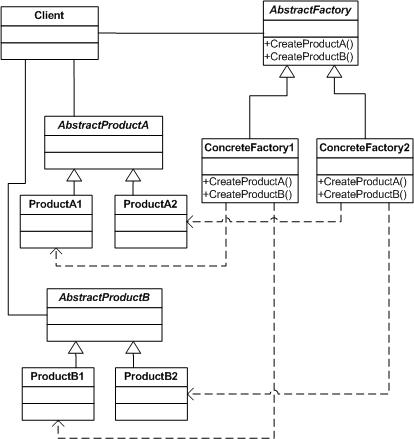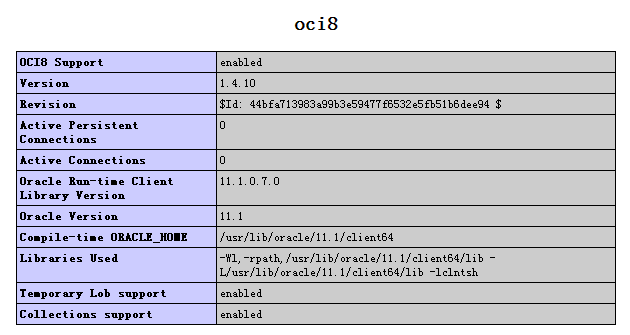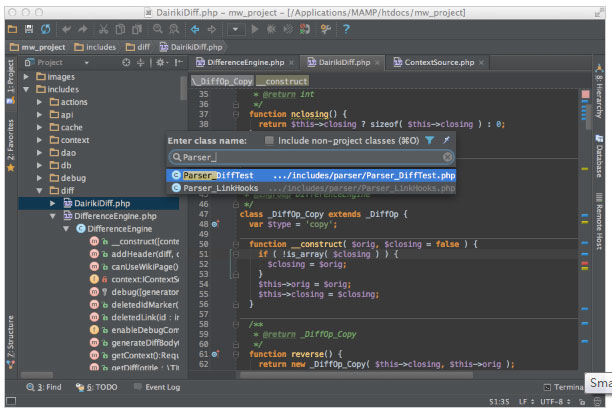|
|
當(dāng)ConcreteHandler(具體的處理程序)不知道如何滿足來自Client的請(qǐng)求時(shí),或它的目的不是這個(gè)時(shí),它會(huì)委派給鏈中的下一個(gè)Handler(處理程序)來處理。
這個(gè)設(shè)計(jì)模式通常和復(fù)合模式一起使用,其中有些葉子或容器對(duì)象默認(rèn)委派操作給它們的父對(duì)象。另一個(gè)例子是,本地化通常是使用責(zé)任鏈處理的,當(dāng)?shù)抡Z翻譯適配器沒有為翻譯關(guān)鍵詞找到合適的結(jié)果時(shí),就返回到英語適配器或干脆直接顯示關(guān)鍵詞本身。
耦合減少到最低限度:Client類不知道由哪個(gè)具體的類來處理請(qǐng)求;在創(chuàng)建對(duì)象圖時(shí)配置了鏈;ConcreteHandlers不知道哪個(gè)對(duì)象是它們的繼承者。行為在對(duì)象之間分配是成功的,鏈中最近的對(duì)象有優(yōu)先權(quán)和責(zé)任滿足請(qǐng)求。
參與者:
◆Client(客戶端):向Handler(處理程序)提交一個(gè)請(qǐng)求;
◆Handler(處理程序)抽象:接收一個(gè)請(qǐng)求,以某種方式滿足它;
◆ConcreteHandlers(具體的處理程序):接收一個(gè)請(qǐng)求,設(shè)法滿足它,如果不成功就委派給下一個(gè)處理程序。
下面的代碼實(shí)現(xiàn)了一個(gè)最著名的責(zé)任鏈?zhǔn)纠憾嗉?jí)緩存。
復(fù)制代碼 代碼如下:
/**
* The Handler abstraction. Objects that want to be a part of the
* ChainOfResponsibility must implement this interface directly or via
* inheritance from an AbstractHandler.
*/
interface KeyValueStore
{
/**
* Obtain a value.
* @param string $key
* @return mixed
*/
public function get($key);
}
/**
* Basic no-op implementation which ConcreteHandlers not interested in
* caching or in interfering with the retrieval inherit from.
*/
abstract class AbstractKeyValueStore implements KeyValueStore
{
protected $_nextHandler;
public function get($key)
{
return $this->_nextHandler->get($key);
}
}
/**
* Ideally the last ConcreteHandler in the chain. At least, if inserted in
* a Chain it will be the last node to be called.
*/
class SlowStore implements KeyValueStore
{
/**
* This could be a somewhat slow store: a database or a flat file.
*/
protected $_values;
public function __construct(array $values = array())
{
$this->_values = $values;
}
public function get($key)
{
return $this->_values[$key];
}
}
/**
* A ConcreteHandler that handles the request for a key by looking for it in
* its own cache. Forwards to the next handler in case of cache miss.
*/
class InMemoryKeyValueStore implements KeyValueStore
{
protected $_nextHandler;
protected $_cached = array();
public function __construct(KeyValueStore $nextHandler)
{
$this->_nextHandler = $nextHandler;
}
protected function _load($key)
{
if (!isset($this->_cached[$key])) {
$this->_cached[$key] = $this->_nextHandler->get($key);
}
}
public function get($key)
{
$this->_load($key);
return $this->_cached[$key];
}
}
/**
* A ConcreteHandler that delegates the request without trying to
* understand it at all. It may be easier to use in the user interface
* because it can specialize itself by defining methods that generates
* html, or by addressing similar user interface concerns.
* Some Clients see this object only as an instance of KeyValueStore
* and do not care how it satisfy their requests, while other ones
* may use it in its entirety (similar to a class-based adapter).
* No client knows that a chain of Handlers exists.
*/
class FrontEnd extends AbstractKeyValueStore
{
public function __construct(KeyValueStore $nextHandler)
{
$this->_nextHandler = $nextHandler;
}
public function getEscaped($key)
{
return htmlentities($this->get($key), ENT_NOQUOTES, 'UTF-8');
}
}
// Client code
$store = new SlowStore(array('pd' => 'Philip K. Dick',
'ia' => 'Isaac Asimov',
'ac' => 'Arthur C. Clarke',
'hh' => 'Helmut Heißenbüttel'));
// in development, we skip cache and pass $store directly to FrontEnd
$cache = new InMemoryKeyValueStore($store);
$frontEnd = new FrontEnd($cache);
echo $frontEnd->get('ia'), "/n";
echo $frontEnd->getEscaped('hh'), "/n";
關(guān)于php責(zé)任鏈設(shè)計(jì)模式的一些實(shí)現(xiàn)說明:
◆責(zé)任鏈可能已經(jīng)存在于對(duì)象圖中,和復(fù)合模式的例子一樣;
◆此外,Handler抽象可能存在,也可能不存在,最好的選擇是一個(gè)分開的Handler接口只可以執(zhí)行handleRequest()操作,不要強(qiáng)制一個(gè)鏈只在一個(gè)層次中,因?yàn)楹竺娴囊呀?jīng)存在了;
◆也可能引入一個(gè)抽象類,但由于請(qǐng)求處理是一個(gè)正交關(guān)注,因此具體的類可能已經(jīng)繼承了其它類;
◆通過constructor 或setter,Handler(或下一個(gè)Handler)被注入到Client或前一個(gè)Handler;
◆請(qǐng)求對(duì)象通常是一個(gè)ValueObject,也可能被實(shí)現(xiàn)為一個(gè)Flyweight,在php中,它可能是一個(gè)標(biāo)量類型,如string,注意在某些語言中,一個(gè)string就是一個(gè)不變的ValueObject。
簡(jiǎn)單的總結(jié)責(zé)任鏈模式,可以歸納為:用一系列類(classes)試圖處理一個(gè)請(qǐng)求request,這些類之間是一個(gè)松散的耦合,唯一共同點(diǎn)是在他們之間傳遞request. 也就是說,來了一個(gè)請(qǐng)求,A類先處理,如果沒有處理,就傳遞到B類處理,如果沒有處理,就傳遞到C類處理,就這樣象一個(gè)鏈條(chain)一樣傳遞下去。
php技術(shù):PHP設(shè)計(jì)模式之責(zé)任鏈模式的深入解析,轉(zhuǎn)載需保留來源!
鄭重聲明:本文版權(quán)歸原作者所有,轉(zhuǎn)載文章僅為傳播更多信息之目的,如作者信息標(biāo)記有誤,請(qǐng)第一時(shí)間聯(lián)系我們修改或刪除,多謝。



